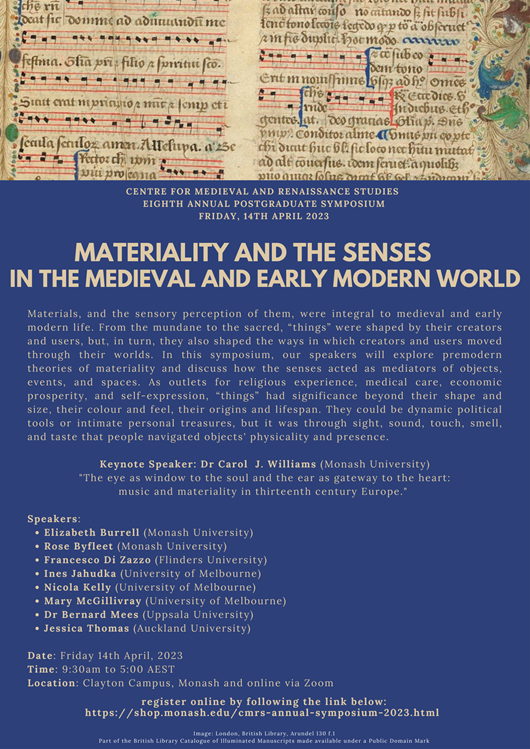“Materiality and the Senses in the Medieval and Premodern World,” Eighth Annual CMRS Postgraduate (Hybrid) Symposium, 14 April.
We are pleased to announce that registration for the Eighth Annual CMRS Postgraduate Symposium that will take place on 14 April is now open. Our theme this year is “Materiality and the Senses in the Medieval and Premodern World”.
Materials, and the sensory perception of them, were integral to medieval and early modern life. From the mundane to the sacred, “things” were shaped by their creators and users, but, in turn, they also shaped the ways in which creators and users moved through their worlds. In this symposium, our speakers will explore premodern theories of materiality and discuss how the senses acted as mediators of objects, events, and spaces. As outlets for religious experience, medical care, economic prosperity, and self-expression, “things” had significance beyond their shape and size, their colour and feel, their origins and lifespan. They could be dynamic political tools or intimate personal treasures, but it was through sight, sound, touch, smell, and taste that people navigated objects’ physicality and presence.
Our keynote speaker for the event will be Dr Carol J. Williams and we also have a fantastic range of speakers presenting throughout the day. This is a hybrid event and will be occurring on our Clayton Campus as well as on zoom. Free registration can be found here and closes on the 4 April. Virtual registration can still occur after that by emailing the CMRS at cmrs-postgraduatecommittee@monash.edu.

